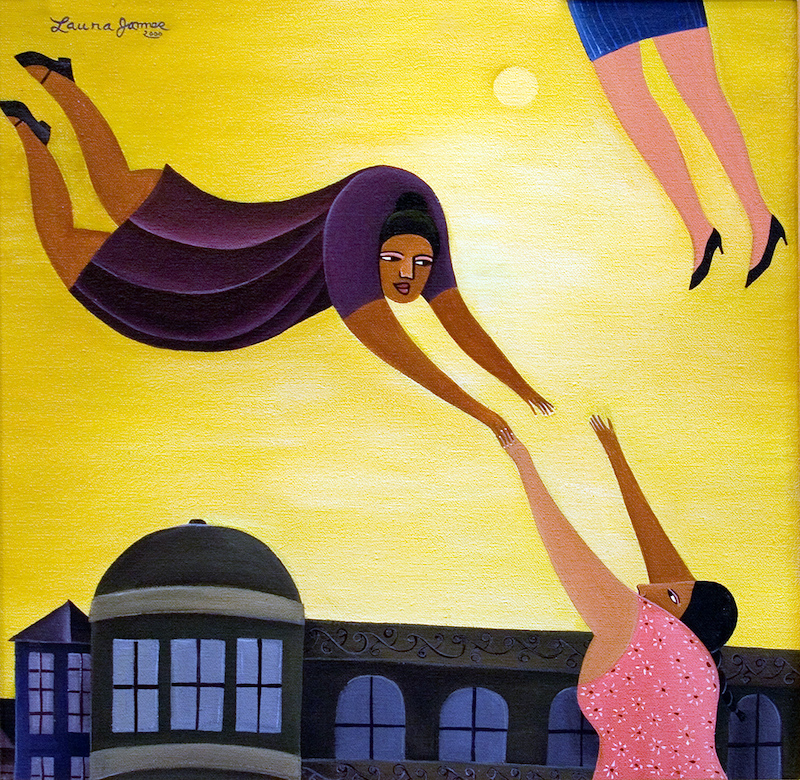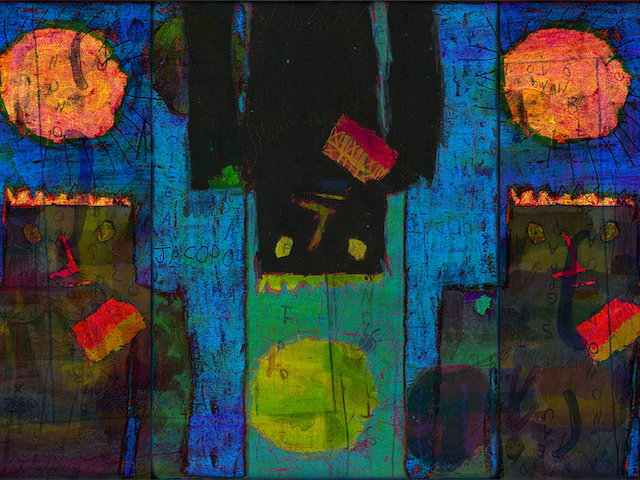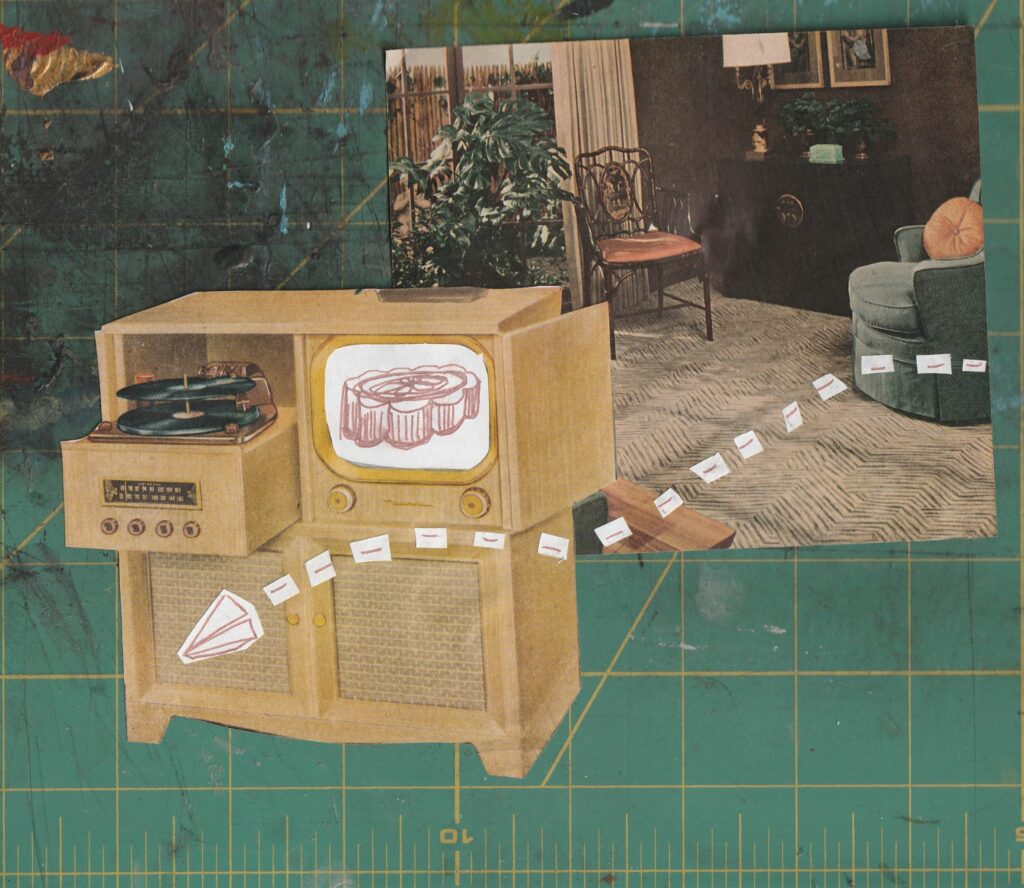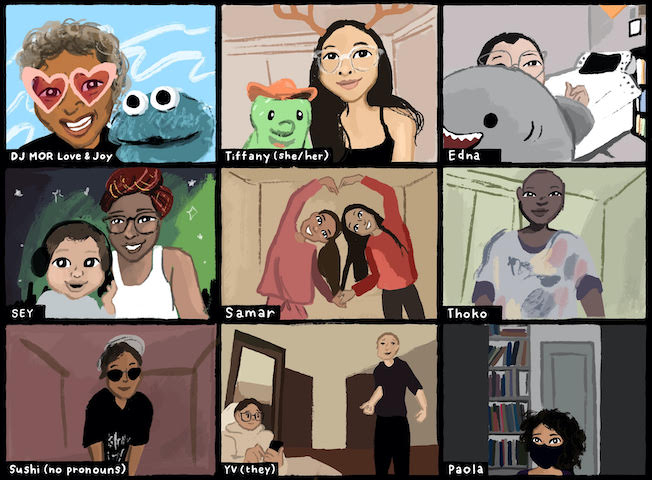I want to be sustained by a world that we create

January 28, 2021
Z
Under an autumn
chill around four, we were born,
doctors said it’s a —
poem! We will be a problem,
us, both nonwhite and women,1
spinning gold out of
words, tearing oneself in two,
pretend to daughter.
You were given family.
Girls like us, we get to choose.
—
C
Sifting through static
of life during the latest
apocalypse, my
earthquake kit mocks me. What use
are beans and flashlights? In case
of emergency,
call my best friend. She’s lighthouse
and life raft, spinning
hope out of despair. Girls like
us, we’ll survive together.
—
Z
I can’t complain but
I’m going to. When the coast
clears, you’re invited
to my vision, the home I’ve
been building. We always start
from scratch, carry our
own water. If I don’t build
it, I can’t live there.
I want to be sustained by
a world that we create.
—
C
We chop wood, carry
water.2 The translation in
my bloodstream is a
directive, but I return
to the root: action without
doer simply is
not done. The future belongs
to us, we’re making
it in our image, all those
that history left behind.
—
Z
Coming from a line
of women who look like me
and men who left sun
for snow, I am familiar
with want. I tanned in the heat
til my skin was warm
and black like the earth’s inside.3
Now I’m looking to
light this expiring candle.
Before it burns out, or in.
—
C
Grief into ash, dust
to dust. Is that how it goes?
I was never taught.
But there’s mountain provinces
all round the world, all rock and
pine and fire. I’m at
home anywhere above tree-
line, surrounded by
the horizon. A temple
built for the world, and of it.
—
Z
On the other side,
I check the time. It’s mourning,
and I wish I could
reach across the grief to you.
Years ago, we were neighbors
crying on campus.
In our room starting trouble.
And what do I know
of home? If I’m looking for
safety I know it will be
—
C
everywhere, for all
of us. You and I, the ones
that we love, and the
ones that they love, all gathered
under a very blue sky
near to flowering
trees.4 Turning grief into green,
the earth loves us back.
She’ll always give us joy and
roses, wherever we are.
—
Z
I didn’t know I
could keep anything alive
after the jade died
under my care, in my room.
In another country you
are tending to your
garden. I am filling my
glass with water, too.
Everyday we do the work
and then reap what we have grown.
—
C
In every day
is the possibility
for a small, quiet
revolution. We save seeds
to cultivate an Eden:
No cops, no borders,
no conquests. No distractions.
The sun rises and
our future exhales, peaceful
in the tender morning light.
—
1 Lucille Clifton, “won’t you celebrate with me,” in Book of Light, 1993.
2 Zen Buddhist proverb
3 Audre Lorde, “Coal,” in The Collected Poems of Audre Lorde, 1997.
4 June Jordan, ‘A Powerful Hatred,” in Affirmative Acts: Political Essays, 1998.
Cecile and Zuri are two best friends and writers. They began working together in 2012 as feminist activists at Brandeis University in Waltham, Massachusetts, and have been in a LDBF (long distance best friendship) since 2015.
Renga, meaning “linked poem,” is a collaborative form of poetry that originated in Japan. Each poet takes an image, theme, phrase, emotion, or another idea from the previous poem and carries it into their own. Traditionally, renga focuses on topics such as nature, love, or philosophy; Cecile and Zuri see greater artistic potential in treating a wider array of topics, including feminist solidarity. They have written renga together for their poetry project Half Empty Half Dangerous from 2018.



